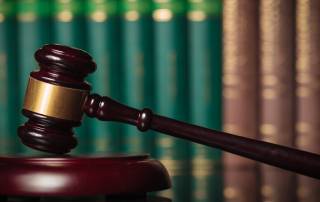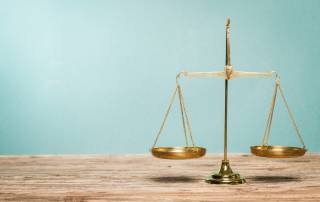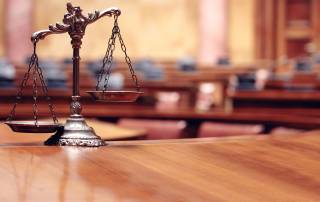Across the nation in recent years, a number of states have legalized the medical and recreational use of marijuana, and there’s been a general easing up on prosecutions for the possession of small amounts of drugs for personal use.
Drug diversion programs in many states, for instance, are keeping first offenders out of prison for minor drug possession charges, and first offenders in these states can often avoid a conviction entirely having their drug crimes lawyer fight for their right to a diversion program.
But you cannot expect any leniency if you are charged with the illegal distribution of drugs in the state of New York.
WHAT IS CONSIDERED ILLEGAL DRUG DISTRIBUTION IN NEW YORK?
If a law enforcement officer in this state reasonably believes you are importing, transporting, or selling illegal drugs, you could be taken into custody and charged with the illegal distribution of drugs.
Included as illegal drugs are the more common “street” drugs like heroin and cocaine, but if you sell prescription drugs to others, that is also illegal drug distribution.
If you possess illegal drugs in a quantity that exceeds what you would typically possess for personal use, law enforcement will presume that you intend to sell the drugs.
WHY IS DRUG DISTRIBUTION PUNISHED SO SEVERELY?
Because of the quantities involved and the intention to sell, drug distribution is a serious crime, and the penalty for a conviction will be substantially harsher than a drug possession penalty.
That should come as no surprise to anyone who has followed the history of drug law enforcement in our state.
Since the 1970s, New York has had an international reputation for being aggressive and harsh in the pursuit and punishment of illegal drug dealers, distributors, and manufacturers.
WHO HAS JURISDICTION IN DRUG DISTRIBUTION CASES?
While drug possession charges are usually handled by state courts, a drug distribution charge is more likely to be prosecuted in a federal court. That’s because the illegal distribution of drugs often involves multiple suspects in several states and the transport of drugs across state lines.
But if you are the person facing a drug distribution felony charge, whether you are tried in a federal court or in a state court, you will probably be facing a mandatory minimum prison sentence if you are convicted.
You may not be connected to a violent international drug cartel, but that’s what federal drug laws are designed to fight. If you are convicted on a federal drug distribution charge, the judge in your case may have no choice under the law – except to send you to prison.
WHAT WILL A NEW YORK JUDGE CONSIDER IN A DRUG DISTRIBUTION CASE?
At the state level in New York, all illegal drug sales and drug distribution crimes are charged as felonies.
However, it’s almost impossible to say what the exact sentence might be for any particular drug distribution conviction, because a judge has to take so many factors into account, including:
1. the defendant’s previous criminal convictions (if any)
2. the amount and type of drugs involved
3. aggravating circumstances such as the involvement of minors or firearms
4. the state’s sentencing guidelines and mandatory sentencing requirements
In New York, when the sale of a controlled substance is a first offense and is charged as a fifth-degree felony, a conviction is punishable with a prison term of one year to two-and-a-half years.
ARE THERE STANDARD SENTENCES FOR DRUG DISTRIBUTION CONVICTIONS?
Penalties for fourth-, third-, and second-degree drug distribution felonies are incrementally and increasingly severe. A conviction for a first-degree drug distribution felony at the state level in New York is punishable with:
1. a prison term of eight to twenty years for “non-major” drug traffickers
2. a prison term of twelve to twenty years for second-time felony drug offenders
3. a prison term of fifteen years to life for “major” traffickers
Along with the prison terms, fines can be imposed for drug distribution convictions. Those fines can range from $5,000 for first-time and “non-major” offenders to $100,000 for major drug traffickers.
If you’re charged in the state of New York with illegally selling, distributing, or trafficking drugs, whether you are charged under state or federal law, you must contact a Long Island criminal defense attorney – and get the legal help that you’ll need – immediately.
WHAT DEFENSE STRATEGIES WORK IN DRUG DISTRIBUTION CASES?
A good criminal defense lawyer will develop a defense strategy based on the particular details of the case.
Listed here are several of the defenses typically offered in drug distribution cases:
1. The police had no probable cause to conduct a search. Without probable cause or a search warrant, evidence that’s seized cannot be used against you. If wrongly-seized evidence is the only evidence against you, the distribution charge can probably be dismissed.
2. You had no intention of selling the drugs. Even if you possess a large quantity of a drug, if you can produce evidence that you had no intention to sell or distribute the drug, a prosecutor might reduce the distribution charge to a possession charge.
3. You’re innocent. Possibly the drugs were someone else’s, and you were misidentified as the owner. Possibly the drugs were planted to frame you. If you are innocent, explain what happened to your defense lawyer, and you’ll probably get the justice you need.
The drug distribution laws in New York are specifically written to generate convictions. But unless a suspect sells drugs to a police officer or informer, sells drugs and is seen by a police officer, or confesses to drug distribution, the state may have difficulty winning a conviction.
ON WHAT BASIS ARE MOST DRUG DISTRIBUTION CASES PROSECUTED?
That’s because in most cases, a drug distribution charge will be based on circumstantial evidence.
The discovery of drug-related equipment and paraphernalia – such as scales and plastic bags – offers powerful support for the prosecution in a drug distribution case.
WHAT’S YOUR TOP PRIORITY IF YOU ARE CHARGED WITH A DRUG CRIME?
If you are arrested in New York and accused of illegally distributing drugs – or if you’re charged with any other drug crime – speak to a knowledgeable Long Island criminal defense attorney immediately.
A drug distribution conviction can put you in prison and destroy your future.
If you are charged in New York with illegally distributing drugs, get the experienced legal help you need – right away – because nothing is more important than your freedom and your future.























































